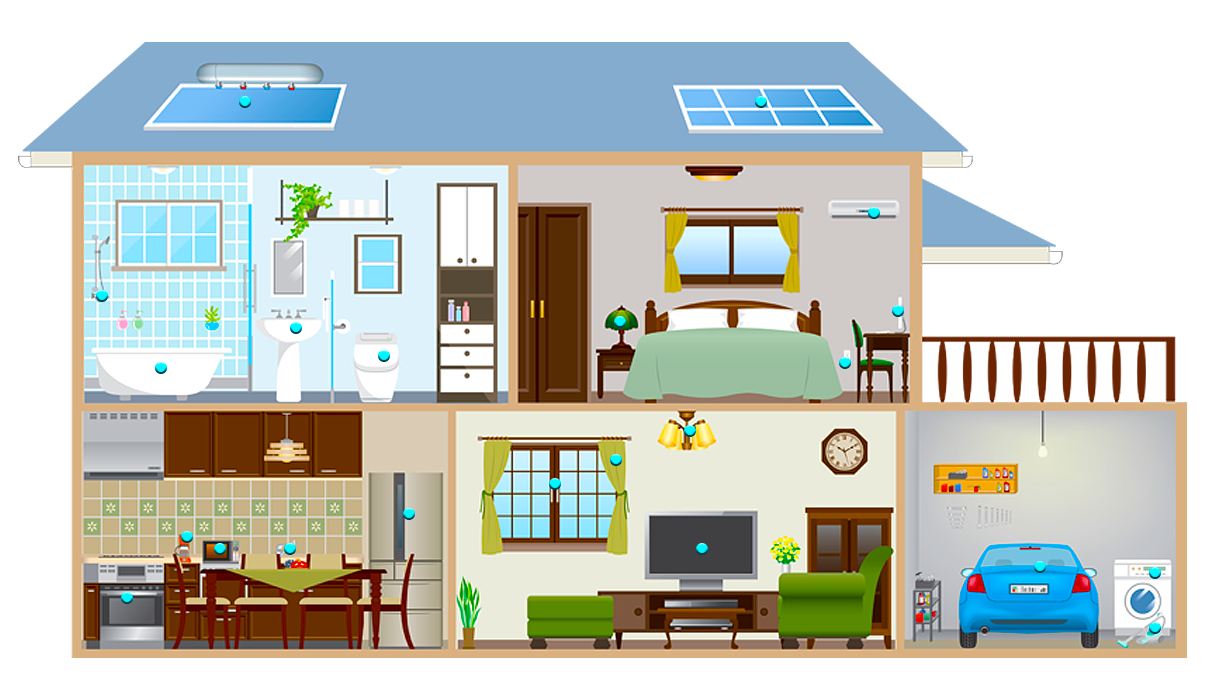Solar panels should be placed where they can receive optimal sun exposure, and they should be tipped on the roof at an angle towards the sun. Although most water heaters last 10-15 years, it's best to start shopping for a new one if yours is more than 7 years old. Take short showers instead of baths. Take more showers than baths. Bathing uses the most hot water in the average household. Fix leaky faucets. You can lose more than 10 gallons of water a day from a single drippy fauce. Get a low-flow toilet. Older, conventional toilets can use 5 to 7 gallons per flush. Low-flow models use as little as 1.6 gallons. The average person flushes five times a day. Consider three-way lamps; they make it easier to keep lighting levels low when brighter light is not necessary. Use air conditioning ONLY when necessary. Standby power can account for 10% of an average household's annual electricity use. Unplug chargers, TVs, audio and video equipment to cut standby electricity use and you could save. Turn off your personal computer when you're away for 20 minutes or more, and both the CPU and the monitor if you will be away for 2 hours or more. Look out for the energy star label when purchasing appliances. Also, do not open the oven door often to check your food. Each time you open the door the oven temperature drops by 25 degrees. Coffee makers are energy efficient, you can save some energy by brewing a larger amount of coffee and storing it in a vacuum flask or Thermos, instead of making single cups throughout the day. Unplug kitchen appliances when not in use. Microwaves in standby mode still use several watts of power. Make sure your refrigerator door seals are airtight. Test them by closing the door over a piece of paper or a dollar bill so it is half in and half out of the refrigerator. If it can easily be pulled how, your latch may need adjustment, the seal may need replacing, or you may consider buying a new unit. In a country like Barbados, where summertime heat gain is the main concern, look for windows with double glazing and spectrally selective coatings that reduce heat gain. Install white or light coloured window shades, curtains, or blinds to reflect heat away from the house. Turn your lights off when you leave a room. Standard, incandescent light bulbs should be turned off whenever they are not needed. Fluorescent lights should be turned off whenever you'll be away for 15 minutes or more. Many appliances continue to draw a small amount of power when they are switched off. Unplug the appliance or using the switch on the power strip to cut all power to the appliance. Keep tires properly inflated and aligned to improve your gasoline mileage by around 3.3%. Wash and dry full loads. If you are washing a small load, use the appropriate water-level setting. When choosing a vacuum, look out for the energy rating label on the appliance, such as the Energy Star label. Install aerating, low-flow faucets and showerheads. Replace your home's five most frequently used light fixtures or bulbs with LED bulbs. LEDs use only about 20%-25% of the energy and last up to 25 times longer than traditional incandescent bulbs. Changing your incandescent bulbs to LED bulbs can save as much as $140.00 a year for each bulb you changeSolar Panels
Solar Water Heater
Shower
Bath Tub
Bath Sink
Toilet
Bedroom Lamp
Air Conditioner
Bedroom Plug
Bedroom Computer
Oven
Coffee Maker
Microwave
Fridge
Living Room Window
Curtain
Chandilier
Television
Car
Washing Machine
Vacuum Cleaner
Kitchen Tap
LED Bulbs

Best Features

